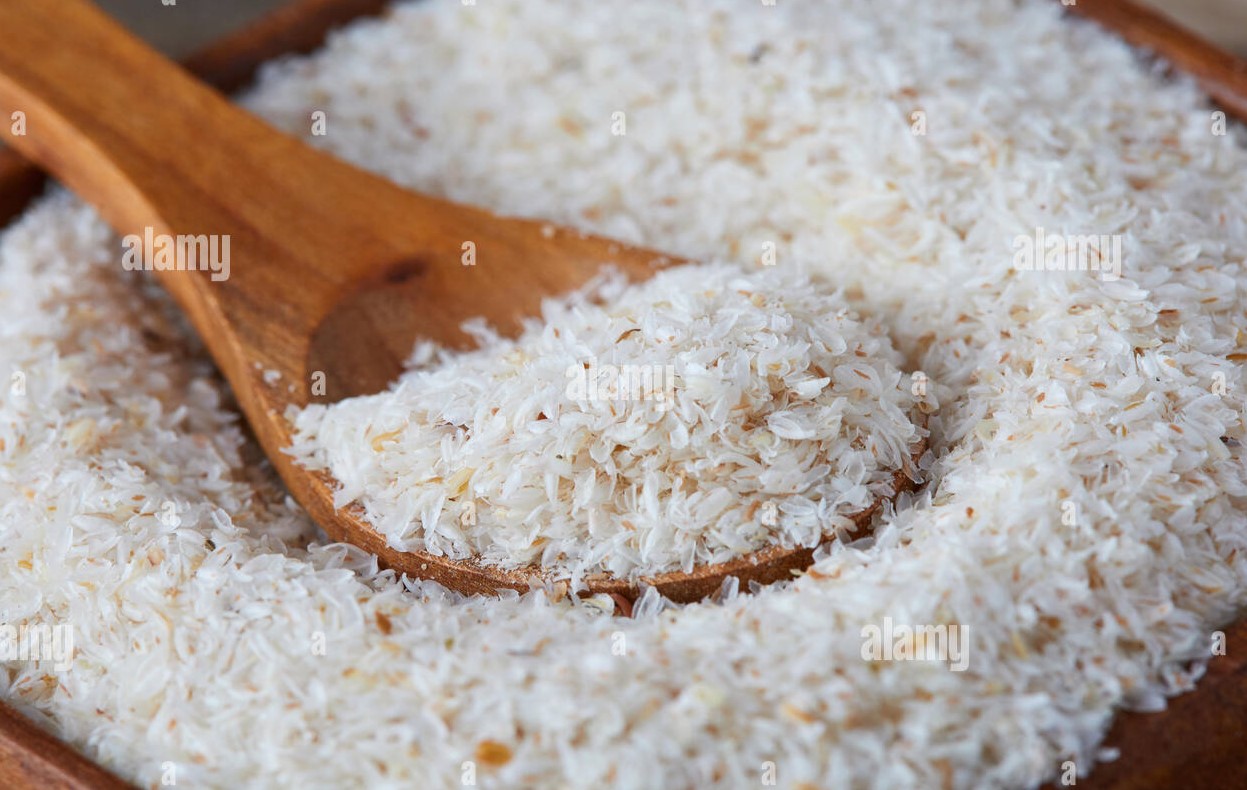The Benefits of Husk Ispaghula: A Natural Solution for Digestive Health
Are you tired of dealing with digestive issues that leave you feeling uncomfortable and bloated? Look no further than husk ispaghula, a natural solution for promoting digestive health. This amazing plant-based ingredient has been used for centuries to soothe and support the digestive system. Whether you struggle with constipation, diarrhea, or irritable bowel syndrome (IBS), husk ispaghula may just be the answer you’ve been searching for. In this article, we’ll explore what exactly husk ispaghula is, how it works to support your digestive health, and how you can easily incorporate it into your daily routine. Get ready to say goodbye to stomach woes and hello to a happier gut!
What is Husk Ispaghula?
If you’re wondering what exactly husk ispaghula is, let’s break it down for you. Husk ispaghula, also known as psyllium husk or simply psyllium, comes from the seeds of the Plantago ovata plant. It has been used in traditional medicine for centuries due to its numerous health benefits.
This natural fiber supplement contains soluble and insoluble fibers that work together to support digestive health. Soluble fiber absorbs water and forms a gel-like substance in the intestines, helping to soften stool and promote regular bowel movements. Insoluble fiber adds bulk to the stool, aiding in its movement through the digestive tract. Together, these fibers can help alleviate common digestive issues and keep your gut happy and healthy.
About Husk Ispaghula
Husk Ispaghula, also known as psyllium husk, is a natural and highly effective solution for digestive health. Derived from the seeds of the Plantago ovata plant, it has been used for centuries in traditional medicine to promote regular bowel movements and relieve various digestive conditions.
The main component of Husk Ispaghula is dietary fiber, which plays a crucial role in supporting healthy digestion. It absorbs water in the gut, forming a gel-like substance that helps soften stools and facilitate their passage through the intestines. This gentle but effective action makes it an ideal choice for individuals struggling with constipation or irregular bowel movements.
Through its high fiber content, Husk Ispaghula also aids in maintaining optimal gut health by promoting the growth of beneficial bacteria in the colon. These probiotics help balance intestinal flora and improve overall digestion. Additionally, this remarkable ingredient can provide relief from diarrhea by absorbing excess water and adding bulk to watery stools.
Research has shown that incorporating Husk Ispaghula into your diet may offer numerous benefits for digestive health. Its ability to regulate bowel movements can alleviate symptoms associated with irritable bowel syndrome (IBS), such as abdominal pain and bloating. Furthermore, studies have demonstrated its potential to lower cholesterol levels and improve blood sugar control.
Incorporating this natural remedy into your daily routine can be highly beneficial for managing a wide range of digestive conditions. Whether you struggle with occasional constipation or chronic diarrhea, Husk Ispaghula offers gentle but effective relief without harsh side effects commonly associated with other treatments.
Different Forms of Husk Ispaghula
When it comes to taking husk ispaghula for digestive health, there are different forms available to suit individual preferences. One common form is powdered husk ispaghula, which can easily be mixed into liquids or added to foods. This makes it convenient for those who want a quick and easy way to incorporate it into their daily routine.
Another option is husk ispaghula capsules or tablets. These provide a more concentrated dose of the fiber, making them ideal for those who prefer a hassle-free method of consumption. Capsules and tablets are also great for on-the-go individuals who may not have access to mixing powders.
Whether you choose powdered husk ispaghula or opt for capsules/tablets, both forms offer the same benefits in supporting digestive health. It all boils down to personal preference and what works best for you!
How Does Husk Ispaghula Support Digestive Health?
Husk Ispaghula is a natural solution that offers numerous benefits for digestive health. But how exactly does it support our digestive system? Let’s take a closer look.
Husk Ispaghula works by absorbing water in the intestine, forming a gel-like substance that softens and adds bulk to the stool. This mechanism of action helps relieve constipation and promotes regular bowel movements. Additionally, this increased bulk can also help improve digestion by aiding in the smooth passage of food through the gastrointestinal tract.
Furthermore, Husk Ispaghula provides several benefits for our digestive system. It not only helps regulate bowel movements but also supports healthy digestion overall. By promoting proper elimination, it reduces bloating and discomfort associated with constipation or irregularity. Moreover, its gentle nature makes it suitable for individuals with sensitive stomachs or those prone to digestive issues like acid reflux or heartburn.
Incorporating Husk Ispaghula into your diet can have significant positive effects on your digestive health! So why not give it a try and experience the benefits firsthand?
Mechanism of Action
The mechanism of action behind husk ispaghula’s digestive health benefits lies in its unique ability to absorb water and form a gel-like substance in the intestines. When consumed, the husk swells up and creates bulk, which helps to soften and add moisture to stool, making it easier to pass. This makes it an effective solution for both constipation and diarrhea.
Additionally, the gel-like texture of husk ispaghula acts as a gentle irritant on the intestinal walls, triggering peristalsis (the wave-like contractions that move food through the digestive system). This helps promote regular bowel movements and prevents sluggishness in the digestive tract. This natural fiber supplement provides much-needed support to keep your gut healthy and functioning optimally.
Benefits for Digestive System
The benefits of husk ispaghula for the digestive system are numerous and impressive. This natural solution works wonders in promoting healthy digestion and preventing common digestive issues.
Husk ispaghula acts as a gentle yet effective fiber supplement that helps regulate bowel movements. It adds bulk to the stool, making it easier to pass and reducing the risk of constipation. Additionally, it helps maintain regularity by softening the stool, which can be particularly beneficial for individuals experiencing hard or dry stools.
Husk ispaghula has been found to aid in managing diarrhea by absorbing excess water in the intestines and adding bulk to loose stools. This can help alleviate symptoms and provide relief from frequent trips to the bathroom.
Incorporating husk ispaghula into your daily routine can have significant positive impacts on your digestive health. Whether you’re seeking relief from constipation or looking for support in managing diarrhea, this natural solution may just be what you need!
Research and Studies Supporting its Effectiveness
Research and studies have consistently shown the effectiveness of husk ispaghula in promoting digestive health. Numerous clinical trials have demonstrated its ability to relieve constipation by increasing stool frequency and improving bowel movement regularity. In fact, a study published in the Journal of Clinical Gastroenterology found that participants who took husk ispaghula experienced significant improvements in their symptoms compared to those who received a placebo.
Furthermore, research has also indicated that husk ispaghula can be beneficial for managing diarrhea. A review published in the journal Therapeutic Advances in Gastroenterology highlighted its ability to absorb excess water and add bulk to stools, thereby reducing loose or watery bowel movements associated with diarrhea. These findings provide strong evidence supporting husk ispaghula as an effective solution for various digestive conditions.
Using Husk Ispaghula for Digestive Conditions
Husk Ispaghula has been widely recognized for its ability to provide relief and support for various digestive conditions. One of the key benefits of Husk Ispaghula is its role in relieving constipation. It acts as a natural laxative, promoting regular bowel movements and preventing discomfort.
Additionally, Husk Ispaghula can also help manage diarrhea by adding bulk to the stool and reducing episodes of loose or watery bowel movements. Its gentle yet effective action makes it suitable for both occasional bouts of diarrhea and chronic conditions like irritable bowel syndrome (IBS). Whether you’re dealing with constipation or diarrhea, incorporating Husk Ispaghula into your diet can be a natural solution worth considering.
Constipation Relief
Are you tired of feeling bloated and uncomfortable due to constipation? Husk Ispaghula could be the natural solution you’ve been searching for! This amazing plant-based fiber is known for its ability to promote healthy bowel movements and relieve constipation.
Husk Ispaghula works by absorbing water in the digestive tract, which helps soften stool and make it easier to pass. It also adds bulk to the stool, stimulating regular bowel movements. Many people have found relief from their constipation symptoms by incorporating husk ispaghula into their daily routine. So why suffer in silence when there’s a natural remedy available? Give husk ispaghula a try and experience the relief you deserve!
Management of Diarrhea
Dealing with diarrhea can be an uncomfortable and inconvenient experience. Thankfully, husk ispaghula offers a natural solution for managing this digestive issue.
Husk ispaghula works by absorbing water in the intestines, which helps to bulk up the stool and reduce the frequency of bowel movements. This can provide relief from loose stools and help normalize bowel function.
To incorporate husk ispaghula into your diet for diarrhea management, it’s important to start with small doses and gradually increase as tolerated. Mix it with water or other fluids to make a drinkable gel-like consistency that can soothe your irritated gut.
If you’re experiencing persistent or severe diarrhea, it’s always best to consult with a healthcare professional for proper diagnosis and treatment options. But incorporating husk ispaghula into your routine may just provide some much-needed relief from this bothersome digestive condition!
Irritable Bowel Syndrome (IBS) Support
Living with Irritable Bowel Syndrome (IBS) can be challenging and disruptive to daily life. Fortunately, husk ispaghula offers a natural solution that may help manage the symptoms associated with this condition.
Husk ispaghula’s high soluble fiber content can help regulate bowel movements and provide relief from IBS-related diarrhea or constipation. It acts as a gentle bulking agent in the intestines, promoting regularity without causing discomfort or urgency. Furthermore, it has been shown to reduce abdominal pain and bloating often experienced by individuals with IBS.
Using husk ispaghula as part of your daily routine may offer much-needed support for those living with IBS. However, it’s always advisable to consult with a healthcare professional before incorporating any new supplement into your diet.
Other Digestive Conditions
For those suffering from digestive conditions beyond constipation and diarrhea, husk ispaghula can also offer relief. Conditions like acid reflux, gastritis, and ulcerative colitis can wreak havoc on the digestive system, causing discomfort and pain. Husk ispaghula’s natural properties can help soothe inflammation in the stomach lining and intestines, providing much-needed support for these conditions. Additionally, its high fiber content promotes healthy digestion by regulating bowel movements and improving overall gut health.
Incorporating husk ispaghula into your diet may be a beneficial option for managing these digestive conditions. It can be easily added to smoothies or mixed with water for a quick drink that provides lasting relief throughout the day. However, it’s important to consult with a healthcare professional before adding any new supplement to your routine to ensure it won’t interfere with existing medications or exacerbate symptoms.
How to Incorporate Husk Ispaghula into Your Diet
Dietary Sources of Husk Ispaghula
Husk ispaghula, also known as psyllium husk, can be easily incorporated into your daily diet. One convenient way to consume it is by mixing it with water or other liquids and drinking it. You can also sprinkle it onto foods like yogurt, cereal, or smoothies for a fiber boost.
Recommendations for Taking Husk Ispaghula
It’s important to start with small amounts of husk ispaghula and gradually increase the dosage. This allows your body to adjust to the increased fiber intake and reduces the risk of digestive discomfort. It’s recommended to drink plenty of fluids while consuming husk ispaghula to help prevent any potential blockages in the digestive system. Remember that everyone’s dietary needs are different, so consult with a healthcare professional before incorporating husk ispaghula into your diet.
Precautions and Interactions to Consider
When using husk ispaghula for digestive health, there are some precautions and interactions you should keep in mind:
– Take medications at least two hours before or after consuming husk ispaghula as it may interfere with their absorption.
– If you have any pre-existing medical conditions such as diabetes or kidney disease, consult with a healthcare professional before adding husk ispaghula to your diet.
– Pregnant women should also consult their doctor before using this natural remedy.
Remember that incorporating a healthy balance of fruits, vegetables, whole grains, and fiber-rich foods into your diet alongside husk ispaghula will provide optimal support for your digestive health journey!
Dietary Sources of Husk Ispaghula
If you’re looking to incorporate husk ispaghula into your diet, there are a few different dietary sources you can consider. One of the most common ways to consume it is by taking a supplement in powder or capsule form. These supplements can easily be added to water, juice, or smoothies for convenience.
Another option is to look for foods that naturally contain high amounts of husk ispaghul’a. Whole grains like oats and barley are excellent sources, as well as fruits and vegetables such as apples, oranges, and carrots. By incorporating these foods into your meals and snacks, you can reap the digestive health benefits of husk ispaghul’a while enjoying a varied and nutritious diet.
Recommendations for Taking Husk Ispaghula
When it comes to incorporating husk ispaghula into your diet, there are a few recommendations to keep in mind. First and foremost, it’s important to start with small doses and gradually increase the amount over time. This allows your body to adjust and can help prevent any potential digestive discomfort.
Additionally, make sure to mix husk ispaghul’a with plenty of water or other fluids before consuming. This helps ensure that it reaches its full potential in promoting healthy digestion. Remember to drink additional water throughout the day as well, as proper hydration is key for optimal digestive function.
Incorporating husk ispaghul’a into your daily routine can be as simple as adding it to smoothies or mixing it into yogurts or cereals. Experiment with different ways of incorporating this natural solution for digestive health into your meals and snacks until you find what works best for you!
Precautions and Interactions to Consider
When incorporating husk ispaghul’a into your diet, it’s important to be aware of a few precautions and potential interactions. First and foremost, always consult with your healthcare provider before starting any new supplement or making significant changes to your diet.
It’s worth noting that some individuals may experience mild bloating or gas when initially taking husk ispaghula. This usually resolves on its own as the body adjusts, but if symptoms persist or worsen, it’s best to speak with a healthcare professional. Additionally, be sure to drink plenty of water when consuming husk ispaghul’a in any form to avoid dehydration.
As with any dietary supplement, there is also the possibility of drug interactions. Husk ispaghul’a could potentially interfere with the absorption or effectiveness of certain medications. To ensure safety and minimize risks, inform your doctor about all medications you are currently taking before adding husk ispaghul’a into your routine.
Precautionary measures can help you enjoy all the benefits of husk ispaghula while minimizing any potential risks. Stay informed and prioritize communication with healthcare professionals for personalized guidance!
Common Questions and Concerns about Husk Ispaghula
Potential Adverse Effects
When it comes to incorporating any new supplement into your routine, it’s natural to have questions and concerns. One common concern about husk ispaghula is whether it has any adverse effects. Rest assured, this natural fiber source is generally well-tolerated by most individuals.
However, as with any dietary fiber supplement, some people may experience mild gastrointestinal discomfort such as bloating or gas when first starting husk ispaghula. These symptoms are usually temporary and can be minimized by gradually increasing your intake of the supplement and ensuring you drink enough water throughout the day.
Allergies and Sensitivities
Another important question that often arises is whether there are any allergies or sensitivities associated with husk ispaghula. Fortunately, allergies to this natural plant-based product are extremely rare. However, if you have a known allergy to psyllium products or other related plants like flaxseed or sesame seeds, it’s advisable to consult with a healthcare professional before using husk ispaghula.
It’s always better to err on the side of caution when it comes to potential allergens. If you notice any allergic reactions such as itching, rash, swelling, or difficulty breathing after consuming husk ispaghula, discontinue use immediately and seek medical attention.
Storage and Shelf Life
One practical concern many people have about supplements relates to storage and shelf life. Husk ispaghula typically comes in powder form which should be stored in a cool dry place away from direct sunlight. It’s essential to check the expiration date on the packaging before purchasing and ensure that you consume the product within its recommended timeframe for optimal freshness and effectiveness.
Expert Advice and Recommendations
If you still have questions or concerns about using husk Ispaghula for digestive health purposes or need specific advice tailored to your individual needs, don’t hesitate to reach out to a qualified healthcare professional who can provide you with expert guidance and recommendations. They can help address any concerns or queries
Potential Adverse Effects
While husk ispaghul’a is generally well-tolerated, it’s important to be aware of potential adverse effects. Some individuals may experience bloating or gas when starting to incorporate husk ispaghula into their diet. This can usually be alleviated by gradually increasing the amount of husk ispaghul’a consumed and ensuring adequate hydration.
In rare cases, allergic reactions to husk ispaghul’a have been reported. Symptoms may include itching, hives, or difficulty breathing. If you experience any of these symptoms after consuming husk ispaghul’a, it’s important to seek medical attention immediately. Additionally, if you have a known allergy to psyllium or any other plant in the Plantaginaceae family, it’s best to avoid using husk ispaghul’a altogether. As with any dietary supplement or medication, it’s always a good idea to consult with your healthcare provider before incorporating husk ispaghul’a into your routine.
Allergies and Sensitivities
Allergies and sensitivities are important factors to consider when incorporating husk ispaghula into your diet. While rare, some individuals may have an allergic reaction to this natural fiber supplement. Symptoms can range from mild itching or hives to more severe reactions like difficulty breathing or swelling of the face, tongue, or throat. It’s essential to be aware of any potential allergies you may have before starting a husk ispaghul’a regimen.
Additionally, some people may experience sensitivity to the texture or taste of husk ispaghula. Mixing it with water or juice can help alleviate any discomfort and make it easier to consume. If you have known allergies or sensitivities, consult with your healthcare provider before adding husk ispaghul’a to your daily routine. They can provide guidance on how best to incorporate it safely while minimizing any potential risks.
Storage and Shelf Life
Proper storage is essential for maintaining the efficacy of husk ispaghul’a. To ensure its longevity, store it in a cool, dry place away from direct sunlight. It’s best to keep it in an airtight container or resealable bag to prevent moisture absorption.
When stored correctly, husk ispaghul’a can have a shelf life of up to two years. However, it’s always wise to check the expiration date on the packaging before use. Remember that expired products may not be as effective and could potentially pose health risks.
By following these simple storage guidelines, you can preserve the quality and effectiveness of your husk ispaghula for optimal digestive health support.
Expert Advice and Recommendations
When it comes to incorporating husk ispaghul’a into your diet, it’s always a good idea to seek expert advice and follow their recommendations. Consulting with a healthcare professional or nutritionist can provide valuable insights on the appropriate dosage and usage of husk ispaghul’a for your specific digestive health needs.
Additionally, experts may suggest starting with smaller doses and gradually increasing as tolerated to minimize any potential side effects. It’s also important to ensure adequate hydration when consuming husk ispaghul’a, as it absorbs water in the digestive tract. Remember that each individual’s response to husk ispaghul’a may vary, so personalized guidance from an expert can help optimize its benefits for you.
Conclusion
The benefits of husk ispaghula for digestive health are undeniable. This natural solution offers a range of advantages, from promoting regular bowel movements and relieving constipation to managing diarrhea and supporting those with irritable bowel syndrome (IBS). Its mechanism of action in the digestive system is both gentle and effective, making it a popular choice for individuals seeking natural remedies.
Not only does husk ispaghul’a provide numerous benefits, but it also has extensive research and studies backing its effectiveness. These studies have shown that incorporating husk ispaghul’a into your diet can lead to significant improvements in various digestive conditions.
When using husk ispaghul’a, it’s important to consider the different forms available, such as powder or capsules. Additionally, incorporating dietary sources of husk ispaghul’a into your meals can be an excellent way to enhance your overall digestive health.
While there are some potential adverse effects and precautions to keep in mind when using husk ispaghula, these are generally rare and easily manageable. It’s always recommended to consult with a healthcare professional before starting any new supplement or dietary regimen.
The benefits of Husk Ispaghul’a make it an ideal choice for individuals looking for a natural solution for their digestive health needs. By understanding its mechanism of action, utilizing its various forms effectively, and following expert advice on consumption guidelines, you can experience the positive impact that Husk Ispaghul’a can have on your overall well-being.







